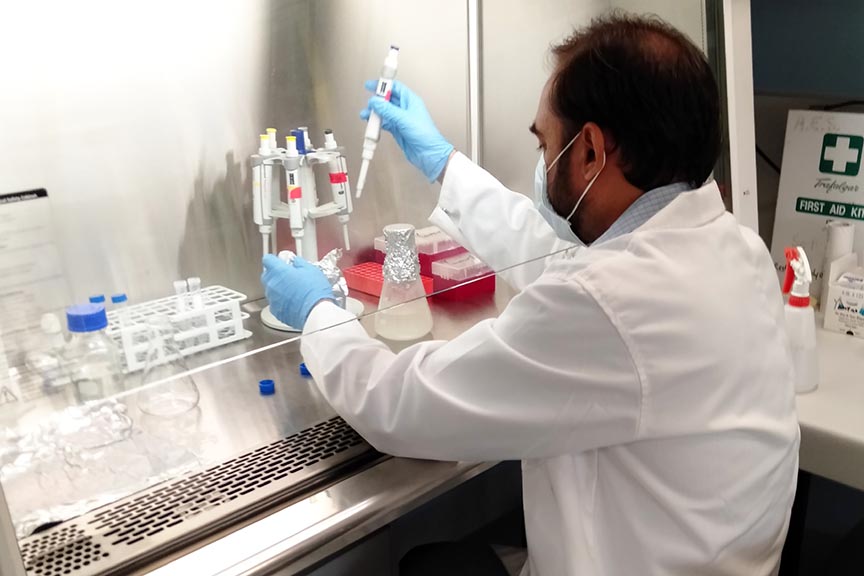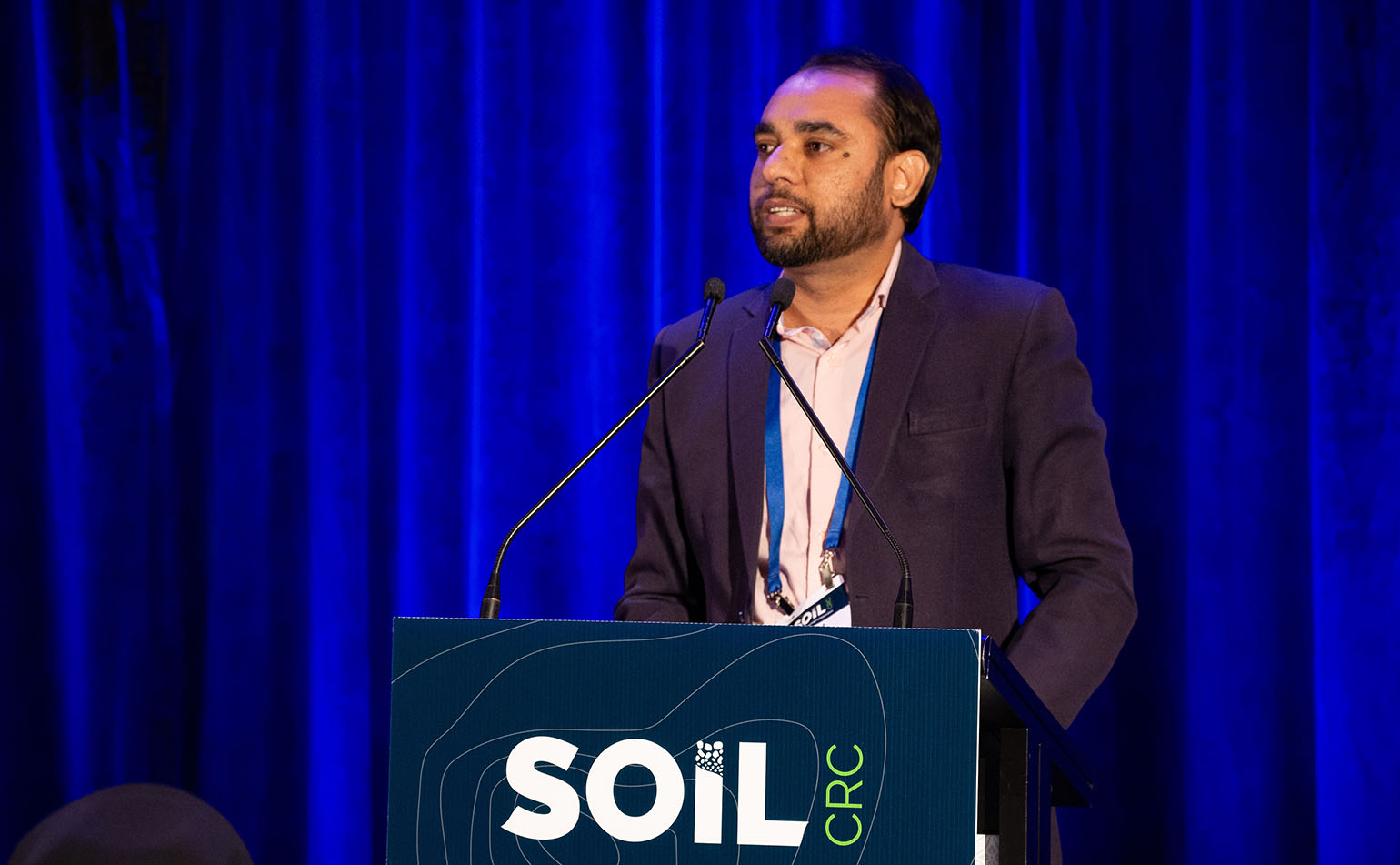Dr Rahat Shabir recently completed his PhD in Agriculture with the Soil CRC and Griffith University and is now looking to embark on the next stage of his career. We caught up with Rahat to learn about his journey so far and find out what’s next.
Born and raised in Burewala, Punjab Pakistan, Rahat developed a keen interest in the natural world from an early age. After completing a Bachelor of Science majoring in Zoology, Botany and Chemistry, he was eager to continue his studies and was particularly interested in expanding his knowledge of Botany.
“I gained admission to Bahauddin Zakariya University, Multan, and completed a Master of Science in Botany in 2008,” Rahat said.
But his journey in education didn’t end there. For the next five years Rahat worked as a secondary school science teacher, hoping to encourage a love of science and nature in the next generation.
“It was during my teaching career that I was inspired to continue my higher education and later enrolled in a Master of Science (Research) in Environmental Sciences,” he said.
Early in his studies, he was awarded a Prime Minister’s fee reimbursement, which is afforded to students in less developed areas, and the Pakistan government covered his university expenses.
“My research work inspired me to learn more and critically think about how we can solve the massive environmental issues we all face.
“I selected a research topic that was of particular interest to me (‘Effect of NaCl on cadmium tolerance and phytoremediation potential of Acacia nilotica L’) and my academic qualifications then enabled me to apply for a PhD at Griffith University in Australia.”
Rahat was awarded a Griffith University Postgraduate Research scholarship and their International Postgraduate Research Scholarship, as well as receiving a Soil CRC top-up scholarship for his PhD studies.
“I was the primary researcher working on Soil CRC’s ‘Evaluating alternative rhizobial carriers for improving soil performance’ project and my main focus was to develop novel biochars and biopolymers as alternative microbial carriers.
“My project focused on advanced analytical approaches to evaluate the suitability of locally available, low-cost biochars produced from different feedstocks and pyrolysis conditions, and emerging biopolymers as alternative carriers for effectively delivering rhizobia.”
Rahat explained that the alternative novel inoculants aim to help farmers increase the production and yield of their crops, by increasing the rate of biological nitrogen fixation in the soil. These alternative novel inoculants are made on cheap, ecofriendly, and locally available alternative carrier materials that are cost-effective for farmers.
“By leveraging the benefits of inoculants, farmers can optimise their crop production, improve soil quality, and contribute to a more sustainable and environmentally friendly approach to agriculture,” he said.

Rahat lists a number of things that he enjoyed about his PhD studies, including the opportunity to carry out lab experiments to develop formulations that no one has created before.
At the top of his list is the productive talks with his supervisors and lab mates, which he credits for making his studies even more enjoyable.
“I also like to write and draw conclusions based on the experimental data,” he enthused. “I am keen to create new hypotheses and deductions based on the results.”
But it’s not all lab coats and desk work for Dr Shabir. While he loves keeping up to date on scientific events and learning more about multicultural values, he is also a keen batsman and loves a game a cricket with friends and spending quality time with family.
So, what’s next for Rahat? Now that he has completed his PhD studies, Rahat says he is keen to secure postdoctoral research in any field related to soil.
“I’m particularly interested in research related to soil biological nitrogen fixation, soil amendments, soil fertility, soil remediation, chemo dynamics of pollutants, soil nutrients, and plant stress physiology,” he said, noting he is also open to working in other roles within the agricultural industry.
Want to know more?
Read Rahat’s PhD research publications:
- Biochar surface properties and chemical composition determine the rhizobial survival rate
- Cow manure compost-based products as alternative rhizobial carrier materials

